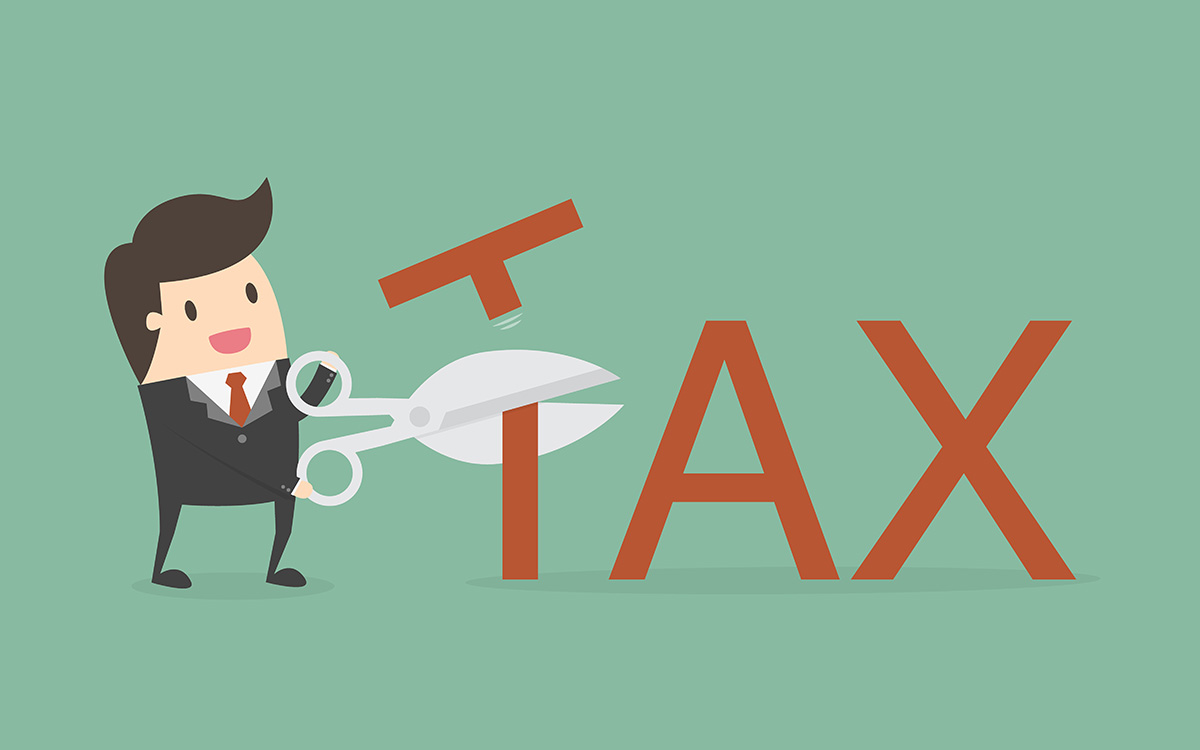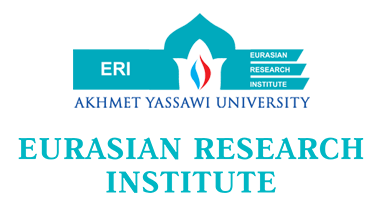
Tax Deduction. Business Concept Cartoon Illustration.
Members of the Eurasian Economic Union (EAEU) has recently experienced economic slowdown and recession due to external shocks such as pandemic and drop in oil prices. Price wars on the global oil market mainly between Russia and Saudi Arabia and pandemic induced demand shock led to the first negative oil prices. Despite the new agreement of the OPEC+ group, the prices remain low, which have a significant negative impact on Eurasian oil producers such as Russia and Kazakhstan. In order to achieve higher prices and measure effectiveness of the OPEC+ coalition, and besides tracking indicators such as demand, supply and inventories of oil, Russia proposes to begin monitoring market shares of member countries of the group [Paraskova, 2020]. New oil reality put Eurasian countries at risk. Under new circumstances, these countries differently reacted to the pandemic and their policies varied from no lockdowns in Belarus to strict measures in Kazakhstan and Kyrgyzstan. Therefore, this commentary aims to review anti-crisis policy of the EAEU countries with focus on Kazakhstan and Russia.
Since the first coronavirus cases in the EAEU were identified in March, Armenia, Kazakhstan and Kyrgyzstan announced and implemented strict measures, in particular, lockdowns and social distancing in order to stop the spread of the coronavirus. State of emergency, which the governments announced in March and prolonged several times, ended in May in Kazakhstan and Kyrgyzstan. However, quarantine measures and travel restrictions remain. Governments of the countries consider elimination of control measures gradually after the situation is under full control of the authorities.
The EAEU members chose different strategies at the country level. For instance, Belarus did not use the lockdown and social distancing, explaining it by economic costs, which would bring more damage to its economy and social wellbeing. President of Belarus Aleksandr Lukashenko discussed economic and social issues with the government and noted that they could not stop key branches of the economy. As the country has to deal with external shocks, including coronavirus, drop in oil prices and border closures, the President urged the government to fulfill basic economic indicators. He noticed that gross domestic product (GDP) of Belarus reduced by 0.3% in the first quarter of 2020, but real incomes of the population went up by 7.1% [BelTA, 2020]. At the same time, President of Russia Vladimir Putin announced . He instructed that these non-working days must be paid, however business, mainly small and medium, claimed that they had not financial resources to pay their workers. President did not announce the state of emergency, which made the Russian measures and situation complicated. Despite Russia having over $550 billion in reserves and relatively low debt, its initial response to the crisis lacked state support and caused criticism [Korsunskaya and Marrow, 2020]. Uncertain situations created by Russian authorities negatively affected the rating of Vladimir Putin. In April, his approval rating decreased to 59% from 68-69% in January and February and the new result is a historical anti-record. The ratings of regional governors also decreased from 65% in March to 61% in April [Kolesnikov, 2020]. Changes in public perception, pressure from opposition and calls from famous Russian economists made the Russian government to change the anti-crisis measures and introduce new policy. On May 11 2020, President Putin announced the end of non-working days and promised new support measures. The new policy consists of additional expenditure on medical and social workers, a new package worth up to (up to $16 billion) for population and small and medium enterprises (SMEs). The government will provide one-time payments of 10 thousand rubles (approximately $140) from 3 to 16 years old children. Benefits for up to 3 years old children and poor families will be extended. The second important economic measure is low rate loans for SMEs. The loans have special conditions. For instance, if the firms will maintain 90% of their employees, the government will write off the loans. Finally, the third measure includes tax forgiveness for affected business for the 2nd quarter of the year, excluding value-added taxes. Additionally, the government will return taxes paid by self-employed during 2019 [Tabakh, 2020]. The Central Bank of Russia, in turn, considers cutting its key rate by 100 basis points in June. This cut will take the key rate to 4.5%. The Head of Russian Central Bank noted that GDP of Russia could shrink by 8% in the 2nd quarter from a year earlier and its banking sector would see a decline in profits in 2020 because of bad loans [Ostroukh and Tétrault-Farber, 2020].
In the EAEU, only Kazakhstan provided unconditional cash transfers for affected people, equaled 42.5 thousand tenge (approximately $100), which is the level of minimum wage in Kazakhstan. More than 4.5 million people obtained this payment. Moreover, the government provides food and daily necessities for more than 1 million people. The measures of the government also includes credit postponements, reduction of taxes and support of affected businesses. Recently, President of Kazakhstan Kassym-Jomart Tokayev announced a new economic policy. In particular, the President instructed the government to use government purchases to support local business. The policy pays special attention to agricultural support, Employment Road Map, new mortgage programs, progressive scale for payroll taxes, and personal work and support of foreign investors [Akorda, 2020].
At the EAEU level, countries had several videoconferences. For instance, at the Eurasian Intergovernmental Council, the Prime Minister of Kazakhstan spoke about taken measures to stabilize the economy and support the population and businesses. He called for regional cooperation and emphasized the importance of economic self-sufficiency and import substitution of agricultural products and other essential goods. He also noted that the current crisis might become an opportunity for the EAEU members to attract production assets displaced from China and Southeast Asia [Kazinform, 2020]. On April 14, the heads of the EAEU member states had a virtual online summit, where they discussed the necessity of macroeconomic policy draft guidelines for 2020 – 2021, containing measures to save and recover Eurasian economies. On April 29, the Eurasian Economic Council approved the document. The parties agreed that costs of the crisis would be higher without joint efforts and cooperation. The countries will continue mutual assistance in strengthening healthcare systems and will remain trade and economic interaction [Shayakhmetova, 2020]. However, the recent crises show that there are many issues to solve at both country and regional levels. One of the most important issues is overdependence on foreign supplies and low industrial capacity to produce necessary industrial and medical products, including personal protective equipment. The second issue is lack of policy coordination within the EAEU, which had a negative impact on the region through following channels. Firstly, regional trade in seasonal agricultural products suffered from border closures and disruption of labor supply. This is a case of cabbage producers in Kazakhstan, who previously exported their products to Russia. Secondly, problems of migrants from Kyrgyzstan, who tried to return from Russia but stuck at the border with Kazakhstan due to control measures. These migrants have to live in camps. Other important problems include lack of mutual assistance. It is important to provide regional aid as the EAEU members have different levels of economic development. Finally, countries of the region should pay attention to the issue of regional/local governance. The reported cases of mismanagement significantly affect production and trade indicators, in particular in the agricultural sector. These market disruptions will have long lasting consequences and will influence potential investment decisions. Thus, in order to mitigate effects of external shocks, countries of the EAEU both at country and regional levels should make fast decisions, assist affected people and businesses, use fiscal and monetary measures to support their economies, improve local management to escape market disruptions, support agricultural and industrial producers, coordinate policy implementation and provide mutual assistance.
References:
Akorda (2020). Speech by the Head of State at the final meeting of the State Commission on the state of emergency. Retrieved from https://www.akorda.kz/ru/speeches/internal_political_affairs/in_speeches_and_addresses/vystuplenie-glavy-gosudarstva-na-zaklyuchitelnom-zasedanii-gosudarstvennoi-komissii-po-chrezvychainomu-polozheniyu. Accessed on 13.05.2020.
BelTA (2020). Belarusian government urged to fulfill major economic indicators. Retrieved from https://eng.belta.by/president/view/belarusian-government-urged-to-fulfill-major-economic-indicators-130012-2020/. Accessed on 23.04.2020.
Kazinform (2020). Kazakh PM takes part in a video conference meeting of Eurasian Intergovernmental Council. Retrieved from https://www.inform.kz/en/kazakh-pm-takes-part-in-video-conference-meeting-of-eurasian-intergovernmental-council_a3636551. Accessed on 10.04.2020.
Kolesnikov, Andrey (2020). Why Putin’s approval rating is breaking anti-record. Retrieved from https://carnegie.ru/commentary/81735. Accessed on 14.05.2020.
Korsunskaya, Darya, and Alexander Marrow (2020). Russia’s Putin vows more support for smaller businesses after criticism. Retrieved from https://www.reuters.com/article/us-health-coronavirus-russia-economy/russias-putin-vows-more-support-for-smaller-businesses-after-criticism-idUSKCN21X1XY. Accessed 15.04.2020.
Ostroukh, Andrey, and Gabrielle Tétrault-Farber (2020). Russian central bank will consider a 100 bp rate cut in June, governor says. Retrieved from https://www.reuters.com/article/us-russia-cenbank-nabiullina-rates/russian-central-bank-will-consider-100-bp-rate-cut-in-june-governor-says-idUSKBN22K200. Accessed on 08.05.2020.
Paraskova, Tsvetana (2020). Russia Calls for Market Share Target for OPEC+. Retrieved from https://oilprice.com/Latest-Energy-News/World-News/Russia-Calls-For-Market-Share-Target-For-OPEC.html. Accessed on 29.04.2020.
Shayakhmetova, Zhanna (2020). Eurasian Economic Council Approves Emergency Measure to Save Economies From Collapse! Retrieved from https://astanatimes.com/2020/05/eurasian-economic-council-approves-emergency-measure-to-save-economies-from-collapse/. Accessed on 01.05.2020.
Tabakh, Anton (2020). Distribution at the exit. What will the May measures to support the economy give. Retrieved from https://carnegie.ru/commentary/81785. Accessed on 14.05.2020.
As far as I know they announce paid holiday or non-working day right lets clarify this.
Note: The views expressed in this blog are the author’s own and do not necessarily reflect the Institute’s editorial policy.
Azimzhan Khitakhunov
Senior Research fellow
Azimzhan Khitakhunov is a research fellow at the Eurasian Research Institute. He has received his bachelor, master and Ph.D. degrees from Al-Farabi Kazakh National University (Ph.D. degree was completed in cooperation with the Johns Hopkins University, School of Advanced International Studies, Bologna, Italy). Currently, he is a senior lecturer at Al-Farabi Kazakh National University, Higher School of Economics and Business, Economics Department, where he teaches macroeconomics related disciplines. His research experience includes participation as a research fellow in the government financed f

